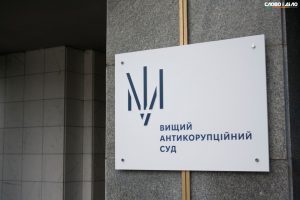

Anti-corruption legislation imposes restrictions on the receipt of gifts from legal entities or individuals to both the subjects of the declaration and their relatives. The law also forbids demanding or asking for gifts.
The usual, at first glance, gesture of courtesy can lead not only to the imposition of a fine, but also to dismissal. For repeated prosecution during the year in accordance with Art. 172-5 of the Code of Administrative Offenses, a person may be deprived of the right to hold certain positions or engage in certain activities for a period of one year. So you should be very careful when accepting gifts.
What do you need to know to avoid problems? Let's analyze further.
Who is forbidden to accept gifts?
Restrictions on receiving gifts do not only apply to civil servants. Article 23 of the Law of Ukraine "On Prevention of Corruption" (in the text - the Law) establishes such restrictions as for persons authorized to perform the functions of state or local self-government, which include: heads of central executive bodies, deputies, deputies of local councils, mayors, judges, civil servants, military officials, police, etc., and in respect of persons who are equated with them. Among them: officials of legal entities of public law, candidates for deputies, auditors, notaries and other persons providing public services (full list here)
In addition, as we have already noted, such persons are prohibited from demanding or receiving gifts not only for themselves, but also loved ones.
If you need advice or professional protection in a case of corruption administrative offense, contact us for help
Gift
In the Law, the concept of a gift reads as follows: cash or other property, benefits, privileges, services, intangible assets that are provided / received free of charge or at a price below the minimum market. However, does this mean that any property or service can be considered a gift? Not at all. Let's find out together under what conditions the thing acquires the characteristics of a gift.
Forbidden demand, ask, receive gifts under the following conditions:
- in connection with the performance by such persons of activities related to the performance of the functions of the state or local self-government[1];
- if the person donating is subordinate to such person.
For example: // this, the cost of such a gift Does not matter. Any gift received in the presence of one of the above circumstances is received illegally.
The value of the gift plays a role in the case when such things correspond to the generally accepted notion of hospitality[2]. To avoid ambiguity, the legislator has provided a limit on the value of a "hospitable" gift. In particular, the law allows receive such gifts if their value does not exceed 1 subsistence minimum for able-bodied persons (as of today it is UAH 2,102) once and 2 subsistence minimums for able-bodied persons - in total during the year.
In our opinion, a progressive norm is an exception to the value of gifts given relatives and are obtained as public discounts on goods, services, public winnings, prizes, prizes, bonuses.
For such gifts, their value does not matter and they can be received regardless of their value and quantity (for example, an official received an apartment as a gift from his brother or won 100 thousand in the lottery).
At the same time, the Law obliges to declare all income, including those received as a gift. The obligation to declare a gift arises if its value exceeds 5 subsistence minimums for able-bodied persons (currently it is UAH 10,510). Moreover, in the case of gifts in the form of cash, the total value of all gifts received during the year is meant.
You can learn more about the features of declaring income in the form of gifts at explanation of the NAPC.
[1] Ambiguous wording; provides space for its interpretation by both regulatory authorities and potential violators.
[2] Not a legal category; the lack of definition in the legislation also provides room for interpretation.
Responsibility
And now let's move on to the most interesting. What is the responsibility for violating the established restrictions?
For the first violation of Art. 172-5 КУпАП the penalty from 1 700 UAH to 3 400 UAH with confiscation of a gift is established.
For repeated commission during the year - a fine of 3,400 UAH to 6,800 UAH with confiscation of such a gift and with deprivation of the right to hold certain positions or engage in certain activities for a period of one year.
Apparently I don't really want to lose my job for one year. Therefore, we want to further analyze what to look for in case of prosecution.
How to defend yourself if you have drawn up a report?
You will find out about the intention to draw up a report when you are called to the police for explanations and a report on a corruption administrative offense.
Already at this stage, it is important to form a defensive position, which should be set out in explanations, provide their own evidence and further defend the position in court.
For effective protection it is necessary to prove that receiving a gift is not related to the performance of official duties or that the person donating is under your control.
The first can be proved, for example, by the absence of any official relationship with the giver. This will be confirmed by the absence of such a person's appeals to the body on any issues that you as an official may influence.
The second is to analyze the powers of both persons and establish the absence of subordination between specific persons.
We also recommend it as a preventive measure apply to the National Agency for Prevention and Combating Corruption as an authorized body and receive an appropriate explanation of your situation. Having such a document will be an additional argument in your favor in court.
Protection in cases of corruption offenses
Judicial practice
- Establishing a connection between a person's performance of state or local government functions and receiving a gift.
If there is no connection between your work and receiving a gift, liability is excluded (Resolution of 04.03.2020 № 243/879/20 Slavic City District Court).
In this case, the stepdaughter presented the apartment to the chief accountant of a legal entity under public law. According to the police, accepting such a gift, the official committed an administrative offense. However, the court made a different conclusion. The case file did not establish that the apartment was donated to resolve issues in their own interests or that the donor was interested in certain official actions of the donee, and therefore there is no connection between the performance of state functions and receiving a gift.
At the same time, the case law is ambiguous in this regard. So, for example, the deputy, having received a gift in the form of the house couldn't prove that receiving such gift wasn't connected with his position (Resolution of 29.11.2019 № 658/3407/19 Kakhovka City District Court). The court concluded that the restrictions on receiving a gift is one of the preventive anti-corruption mechanisms, which prohibits the conclusion of gift agreements regardless of the real purpose of their conclusion. According to the court, the mere fact of concluding a gift agreement was sufficient to establish a violation of the restrictions established by law.
- Subjective composition of persons who can give gifts.
The judge of the local court, mistakenly considering the father of his own child as a person, accepted a gift in the form of money to buy an apartment (Resolution of 29.11.2019 № 522/17102/18 Odessa Court of Appeal). Indeed, the law does not refer the father of a joint child to relatives, as well as the ex-husband. At the same time, in the presence of cohabitation and connection with common life, a man and a woman are recognized as family members, even if they are not married. So be careful when accepting gifts from ex-husbands (wives).
- The cost of gifts that are allowed to be accepted in accordance with generally accepted notions of hospitality.
Surprisingly, the subject of the next offense is none other than the director of the National Anti-Corruption Bureau, who accepted a gift whose value exceeded the established part 2 of Art. 23 of the Law limit (Resolution of 17.12.2019 № 572/2133/19 Rivne Court of Appeal). The director of the bureau illegally received services rented by another person for renting a house, the cost of which amounted to UAH 25,000. Both the court of first instance and the appellate court recognized in the actions of the director the existence of an offense, because a total of one person (group of persons) in a year "hospitable" gifts can be received in the amount of not more than 4,204 UAH.
Conclusions:
Due to the rather vague definitions in the anti-corruption legislation, there is a risk of drawing up a report for violating the restrictions on receiving a gift. In this case, you need to find out what the value of the gift, who gave it and whether it is related to the performance of authority. If you justify everything correctly, you will avoid the risks of being prosecuted for a corruption administrative offense.
Need to study your situation? Contact us, we are ready to help.
Persons prohibited from asking, soliciting or receiving gifts (full list)
- Persons authorized to perform the functions of the state or local self-government:
a) The President of Ukraine, the Chairman of the Verkhovna Rada of Ukraine, his First Deputy and Deputy Prime Minister, the Prime Minister of Ukraine, the First Vice Prime Minister of Ukraine, the Vice Prime Ministers of Ukraine, Ministers and other heads of central executive bodies , who are not members of the Cabinet of Ministers of Ukraine, and their deputies, the Chairman of the Security Service of Ukraine, the Prosecutor General, the Chairman of the National Bank of Ukraine, his first deputy and deputy, the Chairman and other members of the Accounting Chamber, the Verkhovna Rada Commissioner for Human Rights. protection of the state language, Chairman of the Verkhovna Rada of the Autonomous Republic of Crimea, Chairman of the Council of Ministers of the Autonomous Republic of Crimea;
b) people's deputies of Ukraine, deputies of the Verkhovna Rada of the Autonomous Republic of Crimea, deputies of local councils, village, settlement, city mayors;
c) civil servants, local government officials;
d) military officials of the Armed Forces of Ukraine, the State Service for Special Communications and Information Protection of Ukraine and other military formations formed in accordance with the laws, except for conscripts, cadets of higher military educational institutions, cadets of higher educational institutions military institutes, cadets of faculties, departments and divisions of military training;
e) judges, judges of the Constitutional Court of Ukraine, Chairman, Deputy Chairman, members, inspectors of the High Council of Justice, officials of the Secretariat of the High Council of Justice, Chairman, Deputy Chairman, members, inspectors of the High Qualification Commission of Judges of Ukraine, officials of the Secretariat of this Commission State Judicial Administration of Ukraine, jurors (while performing their duties in court);
e) persons of the rank and file and chief staff of the state penitentiary service, tax police, persons of the chief staff of bodies and divisions of civil defense, the State Bureau of Investigation, the National Anti-Corruption Bureau of Ukraine;
f) officials and officials of the prosecutor's office, the Security Service of Ukraine, the State Bureau of Investigation, the National Anti-Corruption Bureau of Ukraine, the diplomatic service, the state forest protection, the state protection of nature reserves, the central executive body implementing state tax policy and the central body executive power, which implements the state customs policy;
g) Chairman, Deputy Chairman of the National Agency for Prevention of Corruption;
g) members of the Central Election Commission;
h) police officers;
i) officials and officials of other state bodies, authorities of the Autonomous Republic of Crimea;
i) members of state collegial bodies;
j) Head of the Office of the President of Ukraine, his First Deputy and deputies, advisers, assistants, commissioners, press secretary of the President of Ukraine, assistant judges;
- Persons who for the purposes of this Law are equated to persons authorized to perform the functions of the state or local self-government:
a) officials of legal entities of public law, which are not specified in paragraph 1 of part one of this article, members of the Board of the National Bank of Ukraine (except the Chairman of the National Bank of Ukraine), persons who are members of the supervisory board of a state bank, state enterprise or state organization; which aims to obtain a profit, a company in the authorized capital of which more than 50 percent of shares (stakes) belong to the state;
b) persons who are not civil servants, local government officials, but provide public services (auditors, notaries, private executors, appraisers, as well as experts, arbitration managers, independent mediators, members of labor arbitration, arbitrators during their performance of these functions, other persons defined by law);
c) representatives of public associations, scientific institutions, educational institutions, experts of appropriate qualification, other persons who are members of competition and disciplinary commissions formed in accordance with the Law of Ukraine “On Civil Service”, the Law of Ukraine “On Service in Local Self-Government Bodies” ”, Other laws (except for non-resident foreigners who are members of such commissions), the Public Integrity Council established in accordance with the Law of Ukraine“ On the Judiciary and the Status of Judges ”, and are not the persons specified in paragraph 1, subparagraph“ a ”Paragraph 2 of the first part of this article.




 (Number of ratings: 8 average: 5.00 of 5)
(Number of ratings: 8 average: 5.00 of 5)



